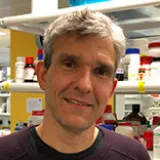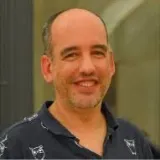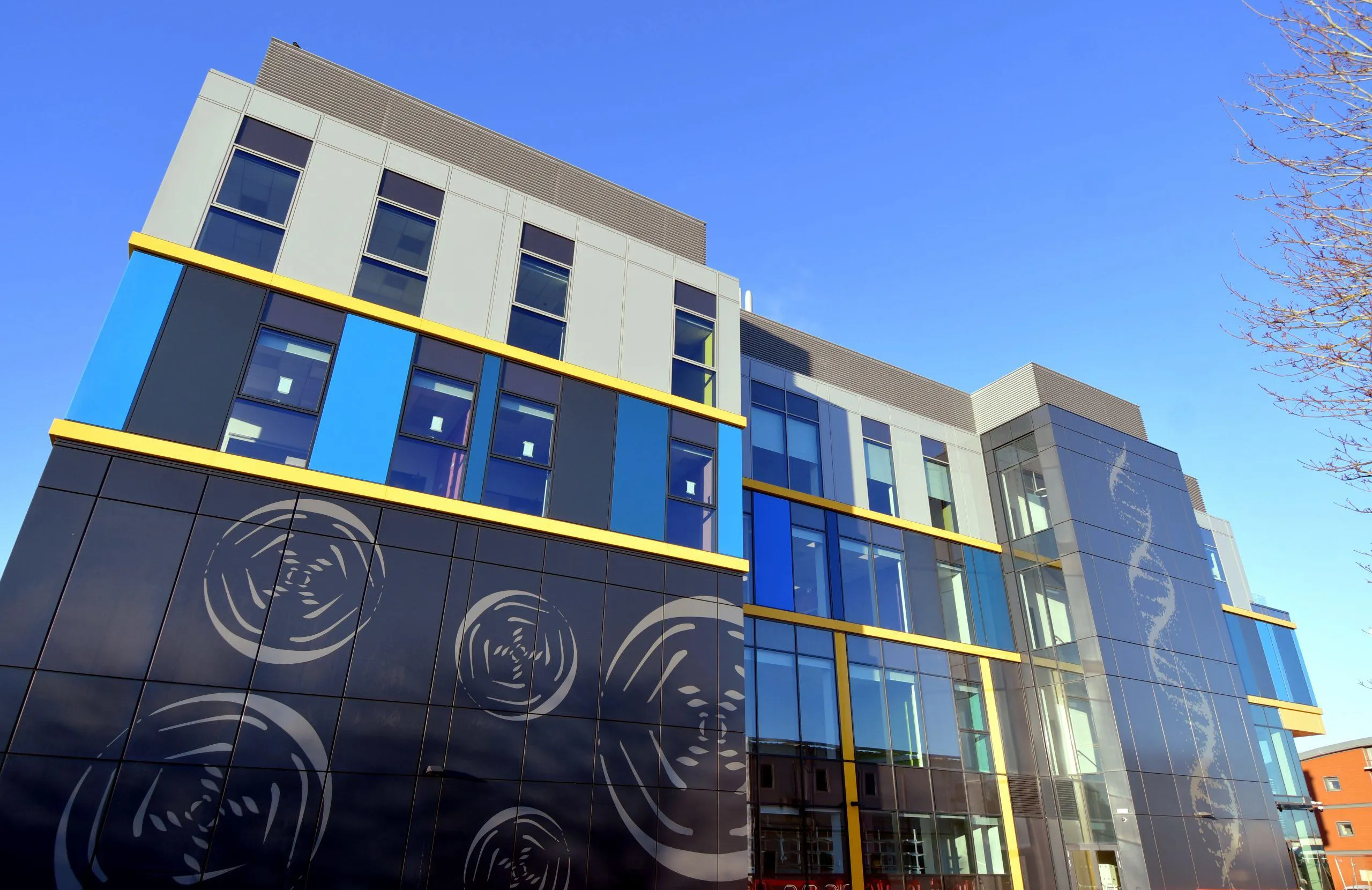
The Rosalind Franklin Institute (RFI) in Harwell is a national Institute founded in partnership with King’s and other leading universities and funded by UKRI. Its mission is to strengthen the life sciences through basic technology development and groundbreaking interdisciplinary research.
King’s aims are to widen and accelerate its research though novel collaborations both in fundamental technology and AI development, and in applying new technologies to challenging biological and medical problems. We will collaborate in various ways, through secondments, research visits, joint studentships, and joint grants.
The RFI’s core research is organised around five themes, please see details below and follow this link for further information.
- AI and Informatics
- Biological Mass Spectrometry
- Correlative Imaging
- Next Generation Chemistry
- Structural Biology
Projects

Correlative light and electron microscopy to investigate the cytotoxic T-cell mediated anti-tumour response
Jess Stone - PhD Student Jess’ project focusses on combining the BioCOP instrument and cryo-electron tomography to probe dynamic and structural features of the immunological synapse. Jess obtained an integrated masters in Biochemistry from The University of Sheffield where she developed an interest in protein biology. During her undergraduate studies, she took part in the Cold Spring Harbor undergraduate summer research programme where she performed a project using RNA-seq to investigate the plant response to shade. Her masters project investigated liquid-liquid phase separation of cystatin C to better understand Bunina Bodies in Amyotrophic Lateral Sclerosis. She’s excited to get involved in the interdisciplinary research performed at the Rosalind Franklin Institute. Franklin Themes: Correlated Imaging and Structural Biology Primary Supervisors: Marco Fritzsche and Michael Grange University: Kings College London University Supervisor: Robert Kochl
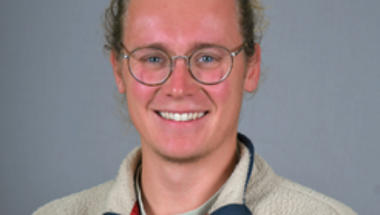
Investigating the Membrane Fusion events of Nipah Virus using Advanced Light Microscopy and Cryo-Electron Microscopy
Joe Thrush - PhD Student Joe’s project focuses on the mechanism of membrane fusion of Nipah Virus using advanced light microscopy and cryo-electron microscopy. Joe is a PhD student at the Rosalind Franklin Institute. He graduated with an integrated masters in Natural Sciences from the University of Cambridge, with his final year project focusing on the aggregation of proteins responsible for Parkinson’s Disease. He then worked for 6 months in the Structural Biology department of the Rosalind Franklin Institute in the nanobody discovery team. He decided that he wanted to embark on a PhD here as he enjoyed it so much. Primary theme: Structural Biology Secondary theme: Correlated Imaging Franklin supervisors: Prof. Ray Owens, Dr Judy Kim and Dr Liang Wu University: King’s College London University Supervisor: Dr Sergi Padillla-Parra

Towards a Foundation Model for Accelerating Volumetric Cryo-Image Segmentation
Ana Katsini - PhD Student Ana’s project focuses on developing a foundational model for volumetric biological images, including cryo-electron tomography. Ana studied Applied Biological Sciences at the University of Stirling. Her final year project focused on investigating novel drugs for the treatment of Acute Myeloid Leukaemia. Following this, she completed a Master’s degree in Applied Bioinformatics at Cranfield University, where she developed a keen interest in AI. Primary theme: Structural Biology Secondary theme: Correlated Imaging Franklin supervisors: Dr Avery Pennington, and Dr Michael Grange University: King’s College London University Supervisor: Dr Jorge Cardoso
Additional Projects
News
Rosalind Franklin Institute: developing new treatments
10 universities will harness cutting-edge technology to transform the way medicines are developed.
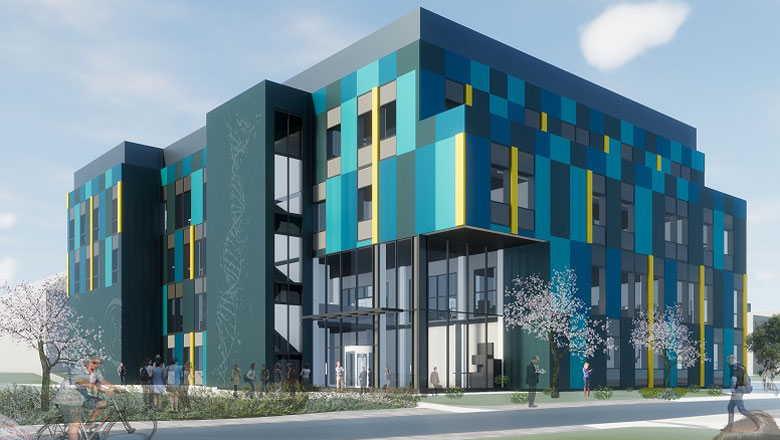
Projects

Correlative light and electron microscopy to investigate the cytotoxic T-cell mediated anti-tumour response
Jess Stone - PhD Student Jess’ project focusses on combining the BioCOP instrument and cryo-electron tomography to probe dynamic and structural features of the immunological synapse. Jess obtained an integrated masters in Biochemistry from The University of Sheffield where she developed an interest in protein biology. During her undergraduate studies, she took part in the Cold Spring Harbor undergraduate summer research programme where she performed a project using RNA-seq to investigate the plant response to shade. Her masters project investigated liquid-liquid phase separation of cystatin C to better understand Bunina Bodies in Amyotrophic Lateral Sclerosis. She’s excited to get involved in the interdisciplinary research performed at the Rosalind Franklin Institute. Franklin Themes: Correlated Imaging and Structural Biology Primary Supervisors: Marco Fritzsche and Michael Grange University: Kings College London University Supervisor: Robert Kochl

Investigating the Membrane Fusion events of Nipah Virus using Advanced Light Microscopy and Cryo-Electron Microscopy
Joe Thrush - PhD Student Joe’s project focuses on the mechanism of membrane fusion of Nipah Virus using advanced light microscopy and cryo-electron microscopy. Joe is a PhD student at the Rosalind Franklin Institute. He graduated with an integrated masters in Natural Sciences from the University of Cambridge, with his final year project focusing on the aggregation of proteins responsible for Parkinson’s Disease. He then worked for 6 months in the Structural Biology department of the Rosalind Franklin Institute in the nanobody discovery team. He decided that he wanted to embark on a PhD here as he enjoyed it so much. Primary theme: Structural Biology Secondary theme: Correlated Imaging Franklin supervisors: Prof. Ray Owens, Dr Judy Kim and Dr Liang Wu University: King’s College London University Supervisor: Dr Sergi Padillla-Parra

Towards a Foundation Model for Accelerating Volumetric Cryo-Image Segmentation
Ana Katsini - PhD Student Ana’s project focuses on developing a foundational model for volumetric biological images, including cryo-electron tomography. Ana studied Applied Biological Sciences at the University of Stirling. Her final year project focused on investigating novel drugs for the treatment of Acute Myeloid Leukaemia. Following this, she completed a Master’s degree in Applied Bioinformatics at Cranfield University, where she developed a keen interest in AI. Primary theme: Structural Biology Secondary theme: Correlated Imaging Franklin supervisors: Dr Avery Pennington, and Dr Michael Grange University: King’s College London University Supervisor: Dr Jorge Cardoso
Additional Projects
News
Rosalind Franklin Institute: developing new treatments
10 universities will harness cutting-edge technology to transform the way medicines are developed.


Contact us
For queries about the Rosalind Franklin Institute please email:
Professor Mark Wallace is King’s Academic Lead for the partnership, and will be able to advise on suggestions for collaboration.
Contact: mark.wallace@kcl.ac.uk
Visits and exchanges: King’s can provide funding for materials, travel and local accommodation for research visits and pilots. For further details on available funding, please follow this link (Intranet page).
Our partnership allows for King’s staff to work at the RFI on longer periods of secondment, for specific research projects.
RFI studentships: Each year ten core PhD projects are co-designed and supervised with University partners. Planning usually starts in January.
Joint grants and consortia: The institute encourages collaborative grant applications, often bringing together several partner universities in multidisciplinary consortia.





